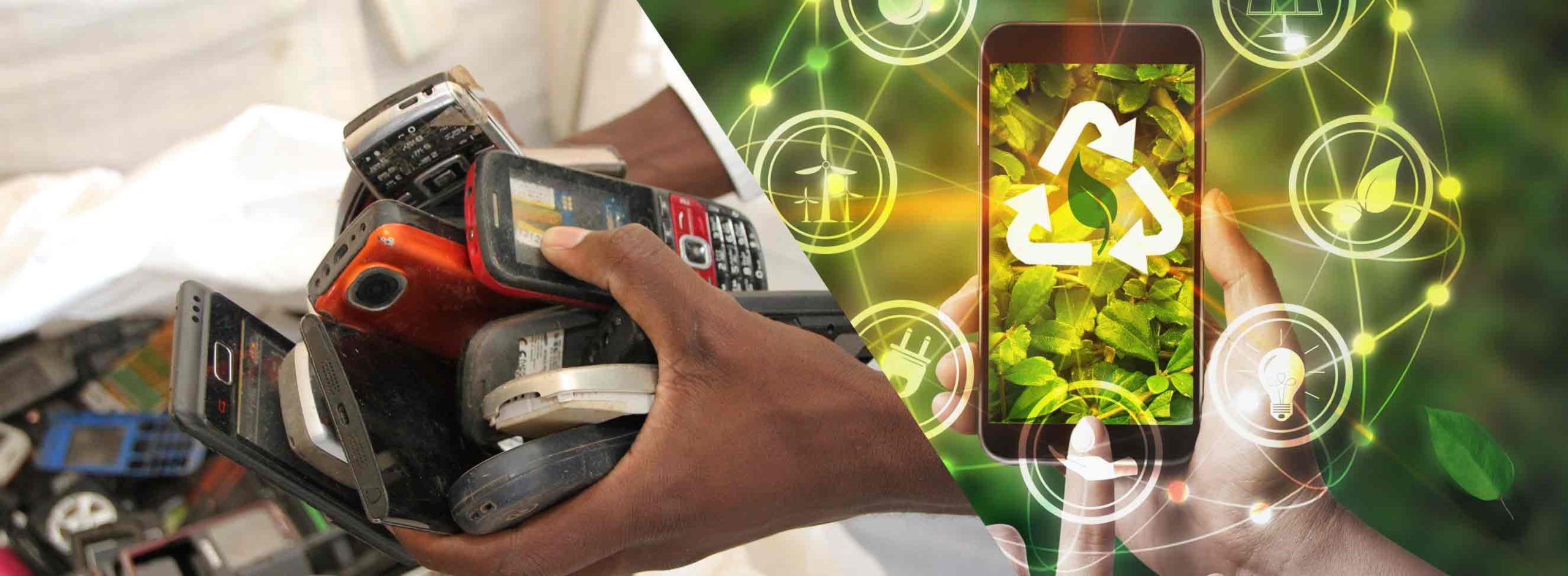Tackling challenges Public entities across the globe increasingly face two challenges: 1) “The digital workplace is crucial for my organization and my employees. How can I apply green/circular thinking to this essential part of my organization, without creating risks, complexity or high costs?” 2) “How can my workforce become more aware - in a tangible, safe and pragmatic way - that green/circular thinking is relevant for all of them, today?".
To do so, national governments, large private organizations, cities and NGOs on three continents use a service called ‘waste compensation’. The service is used to make workplace devices such as phones and laptops waste-neutral, which means that the procurement of one new device is ‘compensated’ by the collection and recycling of an equal amount of scrap that would otherwise not be recycled.
Why is it needed for public organizations?
Public entities in Europe especially have ambitions on circular public procurement (CPP). But most struggle to get internal support to proceed to circular implementation. This is mostly due to lack of awareness amongst their colleagues, due to the complexity of changing procurement processes/agreements and due to the expected negative effects of CPP (e.g. expected cost increase, expected reduction of freedom of choice).
The service, used by several parts of the Dutch government, applies circular thinking to devices used daily by every civil servant: their mobile devices (e.g. phones/laptops). This is done in a very simple, safe and low cost way; an easy starting point for CPP.
The Dutch government has done all of the CPP work (defining, testing, legal work etc), which led to this – publicly available – CPP criteria: https://www.mvicriteria.nl/nl/webtool?criterion=4890#compensatie//7/1//en.
Is waste compensation safe and easy to use?
To ensure criterion is objective, safe, compliant and easy to use, The Dutch government did much of research efforts in collaboration with ‘TCO Development’, a leading industry expert NGO. This NGO also uses the concept of waste compensation in its own industry standards (see TCO’s detailed description here).
Essential to the application of the criterion is that it can be easily applied to any procurement process (including leasing, BYOD etc), and can be simply added to the service portfolio of any hardware supplier. Making the criterion truly immediately implementable, without risk.
The criterion is currently used for every mobile device bought by the Dutch government (under government contract ‘IWR2021’) as well as for every mobile phone and laptop bought by the Dutch Ministry of Defense.
Additional
More information on how the Dutch government is using this approach is found here: https://nlplatform.com/articles/e-waste-compensation-way-forward-circularity.
Or in this article in Dutch on the Ministry of Defense: https://magazines.defensie.nl/materieelgezien/2022/02/iedere-defensietelefoon-afval-neutraal
An international group of researchers and industry experts recently performed a study on waste compensation. They researched if the concept works from an operational and social perspective, and investigated the possibilities to apply the service to a broader range of products (such as monitors). The study (information on this page) was positive about both questions and resulted in a short video in which the independent coalition explains how the service work for procurers: https://www.youtube.com/watch?v=JfU0107bVs8.
Making workplace products symbols of tangible, relevant circular action – and opportunity – helps public bodies build the case for other kinds of circular projects. As waste compensation is a very simple service to use, it’s seen as a first step towards circular (internal) operations.
Contact information
- Elske Tjepkema ([email protected]) – Senior procurement manager IT and GPP advisor at Dutch Ministry of Defense
- Johan Rodenhuis ([email protected]) – Sustainability Advisor category ICT Workplace at Dutch national government
- Joost de Kluijver ([email protected]) – CEO at the waste compensation service that offers the service used by the Dutch public buyers






